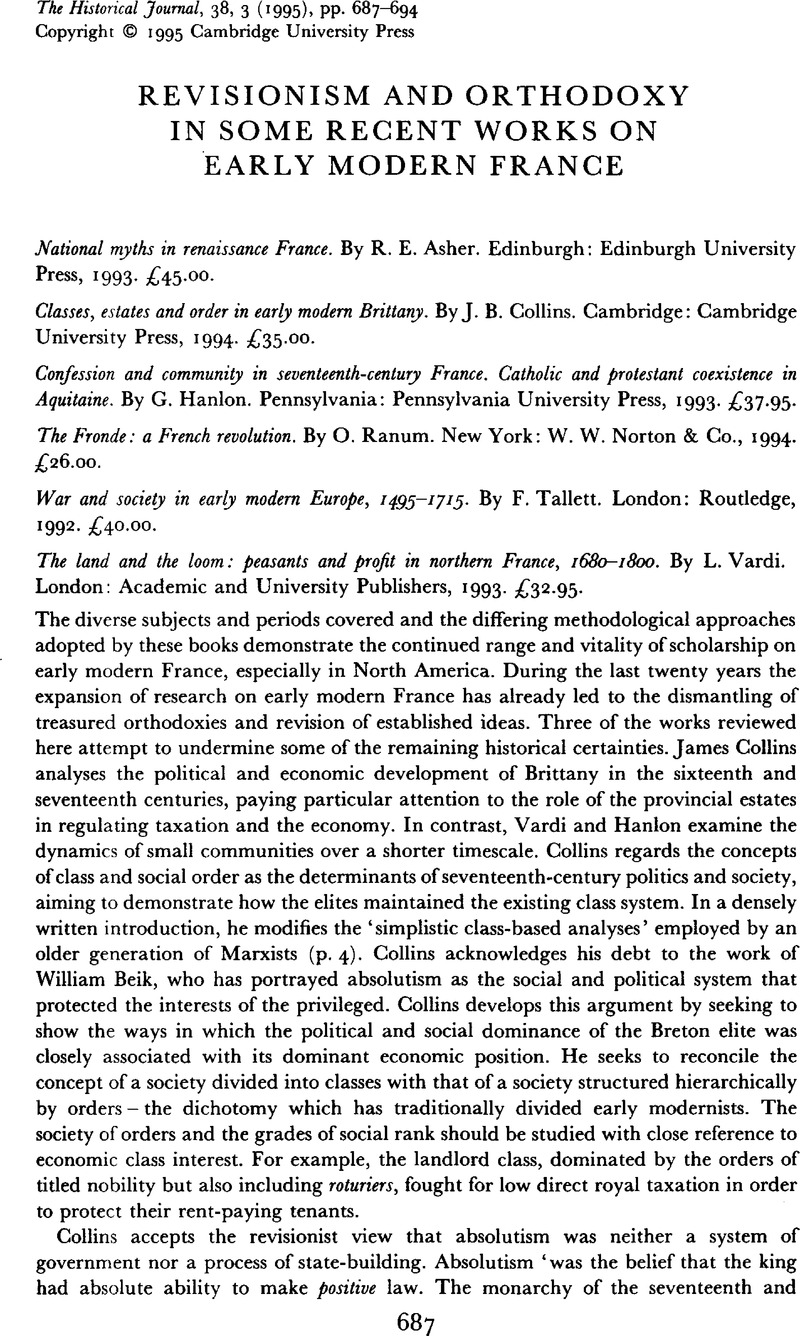No CrossRef data available.
Article contents
Revisionism and orthodoxy in some recent works on early modern France
Published online by Cambridge University Press: 11 February 2009
Abstract

- Type
- Review Articles
- Information
- Copyright
- Copyright © Cambridge University Press 1995
References
1 For some recent considerations, see Corfield, P. J., ed., Language, history and class (Oxford, 1991)Google Scholar; Bush, M. L., Social orders and social classes in Europe since 1500: studies in social stratification (London and New York, 1992).Google Scholar
2 Wood, J. B., The nobility of the election of Bayeux: continuity through change, 1463–1666 (Princeton, 1980)Google Scholar; Dewald, J., The formation of a provincial nobility: the magistrates of the parlement of Rouen, 1499–1610 (Princeton, 1980)CrossRefGoogle Scholar. On the importance of wealth in determining social status in the eighteenth century, see de Chaussinand-Nogaret, G., The French nobility in the eighteenth century: from feudalism to enlightenment (Cambridge, 1985).CrossRefGoogle Scholar
3 Beik, W., Absolutism and society in seventeenth-century France: state power and provincial aristocracy in Languedoc (Cambridge, 1985).CrossRefGoogle Scholar
4 Mettam, R., Power and faction in Louis XIV's France (Oxford, 1988).Google Scholar
5 Root, H., Peasants and king in Burgundy: agrarian foundations of French absolutism (Berkeley, 1987).Google Scholar
6 See for example Briggs, R., Communities of belief: social and cultural tensions in early modern France (Oxford, 1989)Google Scholar; Sabean, D., Power in the blood: popular culture and village discourse in early modem Germany (Cambridge, 1984).Google Scholar
7 Crouzet, D., Les guerriers de Dieu: La violence au temps des troubles de religion, vers 1525–vers 1610 (Paris, 1990).Google Scholar
8 Holt, M. P., ‘Putting religion back into the Wars of Religion’, French Historical Studies, XVIII, 2 (1993). 524–51.CrossRefGoogle Scholar
9 Neuschel, K., Word of honor: interpreting noble culture in sixteenth-century France (Ithaca, N.Y., 1989).Google Scholar
10 Kaiser, W., Marseille au temps de la ligue: morphologie sociale et luttes des factions (Paris, 1992), p. 169.Google Scholar




